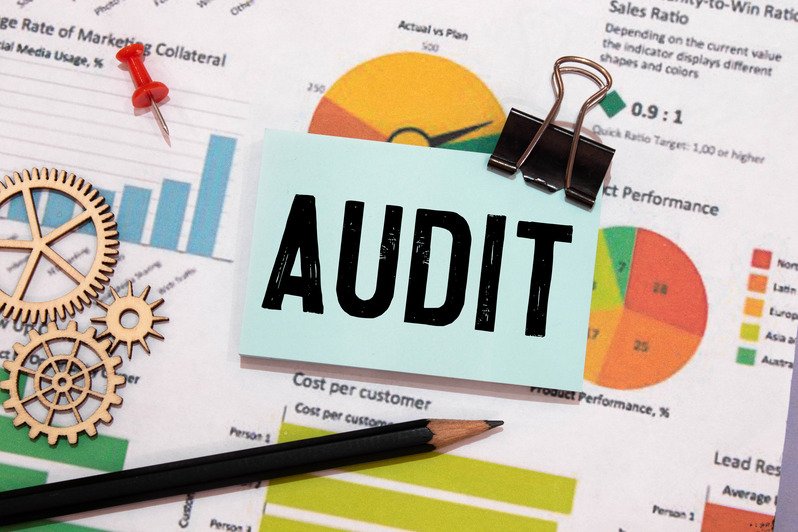Federal Decree-Law No 47/2022 UAE Corporate Tax laws were announced to be effective from 01 June 2023 at @9 percent of all income earned in excess of AED 375,000 for any given fiscal year and @ 0% (zero percent) for any income below this level. The elements of UAE corporate tax Audit Law i.e. tax audit notification periods, scope of tax audit UAE, voluntary disclosures ,limitations of tax Audit UAE, and dispute resolution are discussed hereunder.
Auditing Under The UAE Corporate Tax
The audit is mandatory for corporate transparency to the public and for the Law of Corporate Tax. Corporate Tax Consultant UAE can help businesses to deal with the challenges of corporate tax audit, risk identification, and management thereof. Therefore, it is possible to improve aspects of corporate governance aiming at registration concerns and annual tax returns free from penalties on officially set inline directives by the Federal Tax Authority (FTA).
Auditing under UAE Corporate Tax
Provisions of Notifications and Limitations in UAE Corporate Tax Law
| Provision | Description |
| Tax Audit Notification | Article 16(2) of the amendment also increased the time limitation for tax audit notification up to ten business days which means the taxable persons get more time to prepare the documentation. |
| Tax Assessment Notification: | Tax Assessment Notification should be provided to the taxable entities concerning tax assessment within ten business days (previously five business days). |
| Penalties for Non-Cooperation: | Section 24 states that the tax agents/representatives who are not assisting the tax auditors may suffer penalties. |
| Revised Penalty Limits: | Article 24 lowers the administrative penalties on tax assessments, and removes the minimum AED 500 penalty. |
Tax Audit Criteria UAE
The term “audit” by the Federal Tax Authority UAE is technical and refers to a broad assessment with two main types of tax audit approaches.
| Desk Audits | Desk audits are conducted at the FTA offices. A desk audit can also be interpreted as the search for discrepancies in the view of such submitted documents as tax papers and tax returns. |
| Field Audits: | Field audits are conducted within the business premises whereby significant information including financial documents, and other business activities are studied intensively. |
Audit Triggers and Notification Process
Tax inspection notice specifies the reason for audit selection made by the Federal Tax Authority(FTA). Several factors can trigger a tax audit notification:
| Discrepancies in Tax Returns | Discrepancies in tax returns between income & expenses |
| Non-compliance | Failure to follow the rules/ procedure, for instance, the return was not filed on time or certain taxes were not paid. |
| Random Audit Selection | Random selection can also be made for tax laws compliance related matters. |
Pre-Audit Preparation
Maintaining Accurate Financial Records
Adequate preparations in terms of documentation is mandatory by ensuring the following:
- Updating accounts in line with the corporate taxation laws for the necessary realization of the ultimate goal of the UAE corporate tax audit process.
- A record of each transaction made should be correct and up to date.
- Legal evidence such as invoices and agreements
- Working capital management is the frequency of account reconciliations.
Assuring Adherence to the UAE Laws of Taxation
For UAE tax audit law compliance, a frequent basis review is mandatory to reduce chances of non-compliance:
- Monitor legislation changes.
- Ensure that you file all your complete tax returns on time.
Identifying Potential Audit Risks
Conducting self-evaluations to identify weaknesses by following:
- Reporting inconsistently.
- Shown as non accessible and they may not be accessible in part or in full.
- Specific source: Errors in financial entry classification.
Appointing a Tax Audit Coordinator
- Appointing a coordinator for better compliance and to take tax auditing process advantages in the UAE:
- Gathering all communications with FTA in one point of contact.
- To provide and/or provide access to all the related records.
A Checklist for Corporate Tax Audit Preparation: Do Not Wait Until an Audit Inquiry Is Issued Before Responding
| Accurate Financial Statements | statement of financial position and statement of cash flows, as well as documentation of recorded transactions (where applicable). |
| Tax Returns with Payment Receipts |
|
| Accounting Policies and Internal Controls |
|
| Payroll and Employment Records |
|
| VAT and Excise Tax Records |
|
| Transfer Pricing Documentation | All records relating to transfer pricing should conform to the laws of the United Arab Emirates. |
How to Respond to Notifications
| Standard Time & contact person |
|
| Relations with Auditors |
|
| Working to Deadlines |
|
Post Audit Procedures
| Review of Reports:- Examine auditor reports to identify activities or factors requiring corrective measures.Consult stakeholders on recommendations and implement necessary changes. |
Adjustment and Fines
|
Record Its Supporting Evidence: Safely keep all evidence related to any audit for future reference. |
Practices Which Enhance the Chances of Being Ready for the Audit
|
Conclusion
Successful tax audits in the UAE are made possible through advanced preparation. Businesses that maintain appropriate records, recognize their weaknesses, and observe best practices can effectively manage risks and comply with the UAE corporate tax audit guidelines.
Abrar Ahmad holds a Master’s as well as an MPhil in Finance and has an extensive experience of 10+ years in managing all aspects of Taxation, VAT Consulting and Accounting. He also carries with him a working knowledge of corporate tax and has helped drive value and growth to the businesses of numerous clients.
